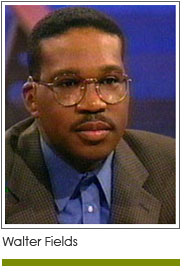 The primary reason Black History Month continues to be important and necessary is that the history and legacy of African-Americans is still shrouded by lies and misconceptions. Historical accounts of our nation continue to overlook, underplay or downright ignore the contributions that Blacks have made to the building of our democracy. Media and political demagogues continue to purposely distort data and advance a narrative of Black life that aims to breed white resentment and divide Americans for the sole purpose of personal enrichment and political gain. As we mark the 150th anniversary of the Civil War, the issues over the inclusion of Blacks as full citizens continue to percolate as the wound inflicted upon America by that bloody conflict has yet to heal.
The primary reason Black History Month continues to be important and necessary is that the history and legacy of African-Americans is still shrouded by lies and misconceptions. Historical accounts of our nation continue to overlook, underplay or downright ignore the contributions that Blacks have made to the building of our democracy. Media and political demagogues continue to purposely distort data and advance a narrative of Black life that aims to breed white resentment and divide Americans for the sole purpose of personal enrichment and political gain. As we mark the 150th anniversary of the Civil War, the issues over the inclusion of Blacks as full citizens continue to percolate as the wound inflicted upon America by that bloody conflict has yet to heal.
The month of February is that one time during the year when our nation can singularly focus on the incredible story of the African-American struggle and journey toward full citizenship. In most instances, events and activities celebrating Black History Month are appropriate and help to shape greater understanding of why the story of African-Americans should be a cause of pride and admiration among all citizens. Still, there are those moments that are a grim reminder of how deeply ingrained ignorance is among some quarters of our country, and why we continue to have to struggle against negative connotations of Black life and culture.
This year one such misguided commemoration comes from none other than Donald Sterling, the owner of the Los Angeles Clippers; the “other” National Basketball Association franchise in “Tinsel town.” It should be noted that Sterling is facing a discrimination lawsuit from a former employee, basketball legend and Hall of Famer Elgin Baylor, and in the past paid close to $3 million to settle a housing discrimination matter. In other words, the man has issues. Proving that wealth is no guarantor of judgment, Sterling decided he would celebrate Black History Month in March by admitting 1,000 underprivileged children free to a Clippers home game. Worse yet, he proudly announced his contribution to Black History Month in an advertisement in last Sunday’s edition of the Los Angeles Times.
If he were not carrying a luggage cart’s worth of racial baggage I might be able to forgive Sterling for good intentions but poor execution. Sadly, a man of his professional standing should know better or have staff that can give him better guidance. His advertisement simply fuels the negative imagery of the Black community by automatically equating being “underprivileged” with being Black. It cuts again to the one-dimensional view that many whites still hold of Blacks. It harkens back to the complaints that the “Cosby Show” of the 1980’s was not a true reflection of the Black community. Clearly, for some, Blacks will always be a downtrodden lot with no hope for a better future without the largess of whites. No one can deny that there are Blacks who are economically deprived, for a number of reasons, but the community represents a wealth of experiences that mirror those of any other group in our nation. Could Sterling have honored children who are excelling in school or who volunteer in their community, and still captured some of those Black children he co-branded underprivileged?
The real shame is that for a professional sports league that is dominated by African-American players, in a sport that has captured the fascination of urban youth; the level of racial insensitivity here is mind boggling. I can only imagine what Sterling has in store for Hispanic Heritage Month. This is a prime example why the inclusion of people of color in corporate management is paramount; particularly in a nation that is moving quickly toward the day when whites will be in the minority. If we allow these negative representations of Blacks, or Hispanics and Asians for that matter, to persist, we will feel the consequences in misguided public policy, white resentment and the embrace of low expectations from the very groups upon which our nation’s future now depends.
The honchos in the NBA’s front office need to pull Sterling’s coattails and clue him in on why his attitude is offensive. For a team that is depending upon some gifted young, Black ballplayers to bring the franchise a long elusive championship, it is diluting its own brand by the ignorance of its owner.














